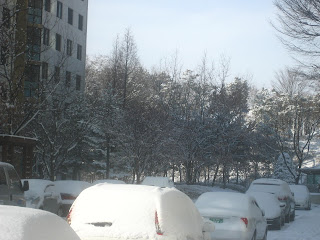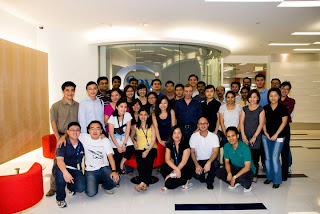My journey into Technical Writing
I dreamed a dream
As a child, I dreamed of being a pilot, and as a young boy I dreamed of being a doctor, but there are dreams that cannot be and storms we cannot weather.
I am now a Tech. Writer in the business of creating content, knowledge base, information architecture, and evangelising products through blogs, and white papers. I communicate technical knowledge, arousing the reader's curiosity - explaining why not just how. The process of learning excites me. I love to research and convey complex information in a simple, understandable, and user-friendly format, and capture the interest of readers, so that they can can easily navigate their way through the maze of complex architecture. I am energised by the steady and deliberate journey from ignorance to competence.My goal was to rank among the top students in the class. I performed well in my studies. On rare occasions, my rank slipped below my expectations, but I always bounced back. Life’s biggest goals were finishing exams, scoring well, and traveling to my hometown - Kottayam, an adventurous journey by train for three days and two nights, passing through hills, mountains, rivers, fields, and tunnels.
After X, like every student in the science stream, my goal was to be a doctor or an engineer. I let go of all extracurricular activities and focused only on my studies. In XII, most of us had private tuition on top of what school teachers were already providing. But things didn't work out as per my plans. I did not qualify for an Engineering or Medicine seat. Based on merit, I enrolled for a bachelor's degree in Science from the M.S. University of Baroda.
While in the first year, I still pursued my dream. I studied for medical entrance while I was doing my BSc. but because of clashes in the examination dates; I let go of my dream and carried on with a renewed mind. I scored 62% in the first year and expected a similar performance in the second year, but to my dismay; I scored only 52%.
During the last year of BSc., I wanted to pursue Masters in Computer Applications (MCA), so I started preparing for the entrance test. To qualify for the entrance test, I needed to score at least 60% in the last year, so that the average of the second and the third year comes to 55%. By God's grace, I scored 62% in the last year.
I appeared for the MCA entrance examination in May 1998. It was a miracle from God to see my rank in the top 10.
When I attended the first semester classes, the subjects were different from what I had studied until then. The programming languages were foreign to me. The only subjects that I was comfortable with were Maths and Economics. During the first year, I performed badly in programming languages. But from the second year onwards, my grades improved. In the last semesters, I did projects at ABB and Railway Staff College, using Visual Basic and Oracle. It was during that time I was exposed to the 'Internet' and got fascinated with Yahoo Messenger. I could interact with people across the globe. In the overall three years of the MCA curriculum, I scored first class. Thank God for His mercy!
During college days, every student's goal was to get through campus interviews. In the fifth semester, of 2001, companies like Amdocs, TCS, Patni, Wipro, and MBT hired more than half the class of our MCA graduates. But in the latter part of the year, because of the dot-com bubble burst coupled with the World Trade Center attack, companies canceled or postponed their job offers. It was a blow to those who were given job offer letters. Miraculously, I got into a US-based startup company - Amtel Security Systems. I was interviewed by Suresh Gajwani, the founder when he was on a visit.
Two weeks later, after joining Impetus, I got another offer from Zensar Technologies, for the post of Technical Writer with a better salary. I was in a dilemma about whether to accept the offer since I was happy with the role of Software Testing Engineer. After much pondering, I decided to go for Zensar's offer that established my career as a Technical Writer, a road not taken by the MCA graduates.
In November 2004, by God's favor, I received a confirmation letter from Samsung about my selection. During the same time, I received another offer from a company in Pune, but I decided to join Samsung Electronics. I resigned from Zensar Technologies on 10th Jan 2004.
 |
 |
| A view from my flat in S.Korea |
 |
| Singapore |
In the first week of October 2011, I got an interview call for a technical writing position with PayPal, an eBay company, at Suntec City, Singapore. It was a six-month contract position. There were four candidates vying for the same post. On Oct 10, a day before my birthday, I got confirmation about my selection. Praise God. I was responsible for creating API documentation for their SOA-based financial instrument services.
On February 29, 2012, I received a call from the consultant informing me that my last working day would be on April 16, 2012. I was taken by surprise since I expected an extension of my contract.
I started applying for jobs. In the third week of March 2012, I got an interview call from JDSU Test & Measurements Singapore Pte Ltd, a US-based telecom company. I attended the interview and within two weeks, I received confirmation about my selection. All praises to my Lord and Savior Jesus Christ. One thing I know for sure, God can do it again and again when you call Him. After my selection, PayPal wanted to extend my contract for three more months, but it was too late.
After working at JDSU for three years and two months, the company split into two disparate groups, Viavi Solutions, and Lumentum. Because of the split, it carried a burden of 50 million USD. To manage the expenses, JDSU decided to close the R&D division in Singapore, phase by phase. I was given a month's notice period. The company provided the relocation expenses and three months' salary for the number of years I worked.
A week before leaving Singapore, I got an interview with NextLabs, through a referral from an ex-colleague. I cleared the first round, which comprised a written test, an interview with a product lead, and with the director. The second round was a telephonic interview with a senior writer in the US. I cleared that and then there was a third round of telephonic interview scheduled on 29th July with the VP of the R&D division from the US.
I also had an interview scheduled with another company on the 30th of July, but my visa was valid until the 26th of July. I went to ICA Singapore, to extend my visa, but it was denied.
While in India, I completed the third round of telephonic interviews and submitted three references from my previous company as per the NextLabs HR policy.
After two weeks, I received confirmation of my selection. The company applied for my Employment Pass, which was approved within a week. Praise God for His favor. After I joined the company on 26 August 2015, I came to know there were other candidates vying for the same post.
Life was going smoothly. I was enjoying the workplace, people were cooperative, and there were new products coming up that needed documentation. We went for occasional team outings and were having fun. In March 2017, we got our salary after a delay of 2 weeks. It was the first sign of financial trouble. During the quarterly all-hands meeting in May, the CEO indicated the possibility of pruning the workforce if the situation didn't improve. On June 7th, when I entered the office, the admin was not in her seat. I came to know she was let off the previous day. At 1 pm, as I was about to go for lunch, the director called me to a meeting room. I was informed that it was my last day in the office. With all the leaves and 2 week's notice period, my official last day would be July 4th. I would get my salary until July 4th, but I need not come to the office. I was calm. I knew God was in control and something better would turn up. A few other employees were also given the termination letter.
Through a referral, I got confirmation from Xchanging, a DXC Technology company, but they wanted me to move to Kuala Lumpur, Malaysia. I gave my consent for relocation and they applied for my EP. Two weeks later, I got an interview offer with Veritas Technologies, in Singapore for a one-year contract via consultancy. They confirmed my selection after a week. I had to renege on the Malaysian offer, but it was cordial. I had to leave Singapore as my pass was about to expire. While I was in India, the company applied for my EP on 3rd August. MoM approved the application on the 25th, and I joined the company on the 30th of August.
At Veritas, my primary responsibility was to create the documentation for the GovTech Singapore, Backup-as-a-Service Cloud project. I visited the GovTech Data Center daily and interacted with stakeholders and engineers to get the doc feedback and project updates. The deadlines were strict as it was a government project.
 |
| GovTech Data Center |
Grab had just merged with Uber in March 2018. I was the first technical writer to join. In a span of three months, other tech writers joined. The engineering manager who recruited us had previous experience working at Uber in the United States. Drawing from his familiarity with Uber's approach, he decided to try a similar strategy at Grab by bringing in technical writers. Consequently, all the writers were assigned to various teams within the organization.

🔍 Can I find what I need?
⚙️ Does it work as promised?
• Version control
• CI/CD pipelines
• Content management
• Team workflows
• Business objectives
- Excellent interpersonal skills
- Excellent communication skills
- IELTS score 8
- Master of Computer Applications (MCA) and Bachelor of Science (Physics) with First Class
- More than 20 years of technical writing experience with reputed companies
- Mentored by Professional Writers and Editors
- Expertise with documentation tools such as Atlassian Confluence, SDL Trisoft, XMetal Author, Robohelp, Altova XML Spy, Adobe FrameMaker, Microsoft Word, Microsoft Visio
- Expertise in creating product documentation such as User Manuals, Installation Guides, Blogs, White Papers, Training Materials, and Standard Operating Procedures (SOP)
- Expertise in creating API documentation using Open-API Specification (Swagger), and testing APIs using Postman
- Expertise with Static Site Generators - Hugo, Jekyll
- Worked in Agile Scrum and Waterfall environment
- Expertise with version control tools such as GitHub, Tortoise Subversion, ClearCase, and Snapshot CM
- If you have any questions or want to hire me, email me at abeeshthomas@yahoo.com.











